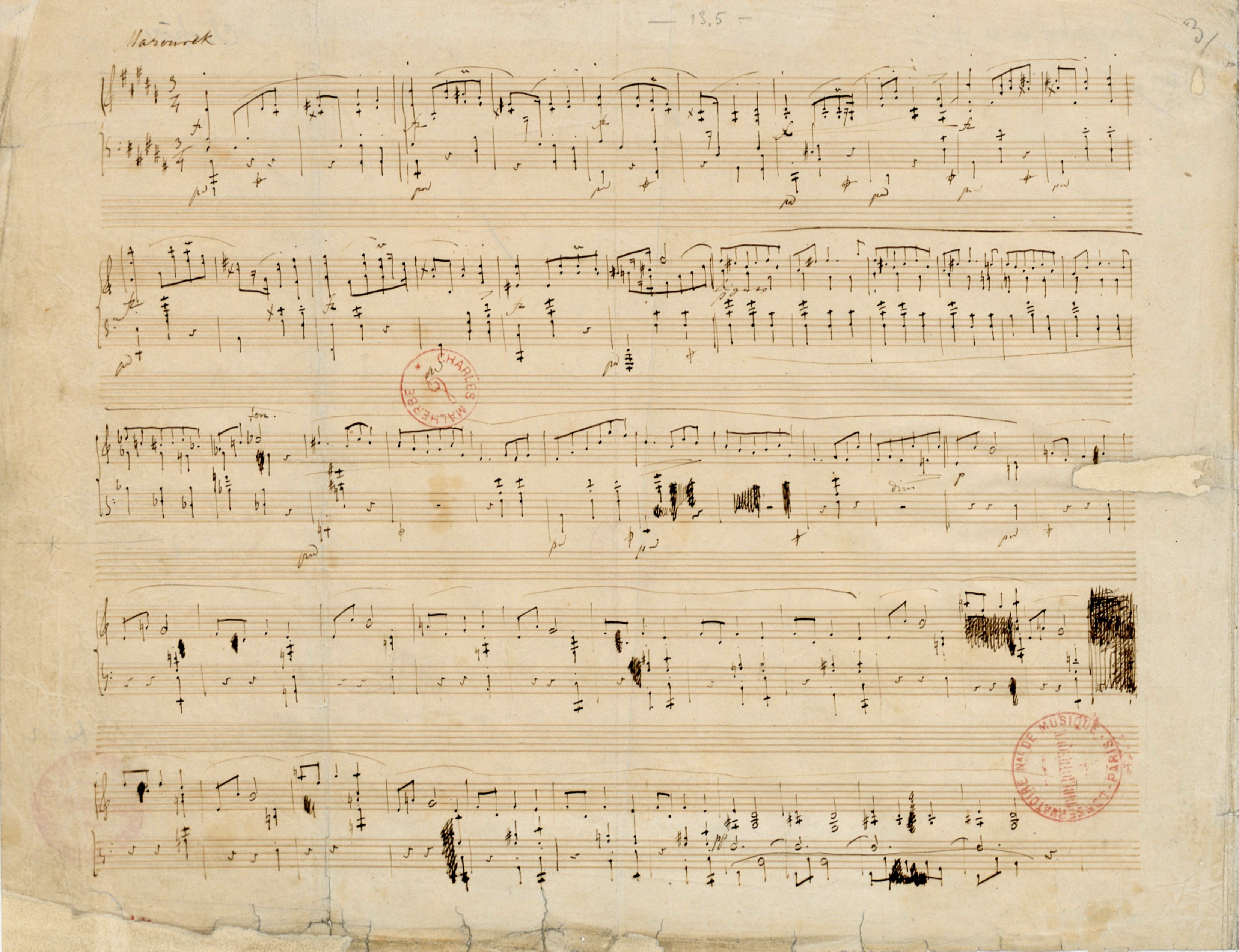



In the entire Mazurka, in each repetition of the main theme, a rhythmic motif consisting of four quavers on the 2nd and 3rd beats of the bar leading to a quaver on the 1st beat of the next bar appears a few times – it is always between an uneven and an even bar (1-2, 3-4, etc.). The slurring of this motif's ending is inconsistent in the sources – the slur reaches either the last or the penultimate note – and in a few places inaccurate.
The AI slurs are almost always longer, reaching the beginning of an even bar (bars 1-2, 3-4, 5-6, 9-10, 11-12, 13-14, 69-70, 71-72, 73-74, 81-82, 83-84, 85-86). It is only three places that differ: in bars 15-16 there is no slur at all, while in bars 77-78 and 79-80 it is clearly deficient (too short). Although Chopin partially modified the articulation concept of the theme already after AI had been prepared (cf. the note in bar 2), it seems unlikely that he would have wanted to introduce some changes in the discussed aspect. Taking into account the above, when determining the main text, in problematic moments we also include the versions of this manuscript.
The FE notation is less consistent, although it is still longer slurs that are most numerous (6 out of 12 places – bars 1-2, 11-12, 15-16, 79-80, 83-84, 85-86). Inaccuracies can be found in bars 5-6 and 71-72 (no continuation of the slur in a new line) and 81-82 (the slur having been finished in a new line, although the previous slur ends on the last quaver in the bar). These situations, particularly the latter, almost certainly indicate the most frequent, longer slurs and resulted from the engraver's carelessness. It is only in bars 3-4, 69-70 and 73-74 that the slurs clearly reach only the last quaver in the first bar, which, when confronted with the remaining cases, is to be considered an inaccuracy, probably reflecting the inaccuracies of [A].
Taking into account the above observations, in the main text we strive to standardise the slurring of the discussed motif, giving advantage to longer slurs in questionable situations.
The editions based on FE reproduce the notation thereof, sometimes inaccurately. It is worth noting the absence of 4 slurs in bars 14-15 and 69-74 in GE – it may mean that they were absent in the proof copy sent to Leipzig and added in the last stage of proofreading FE1. GE2 (→GE3) individually standardised the slurring by prolonging the slur from bar 3 to the beginning of bar 4.
Compare the passage in the sources »
category imprint: Differences between sources; Editorial revisions; Corrections & alterations
issues: GE revisions
notation: Slurs

